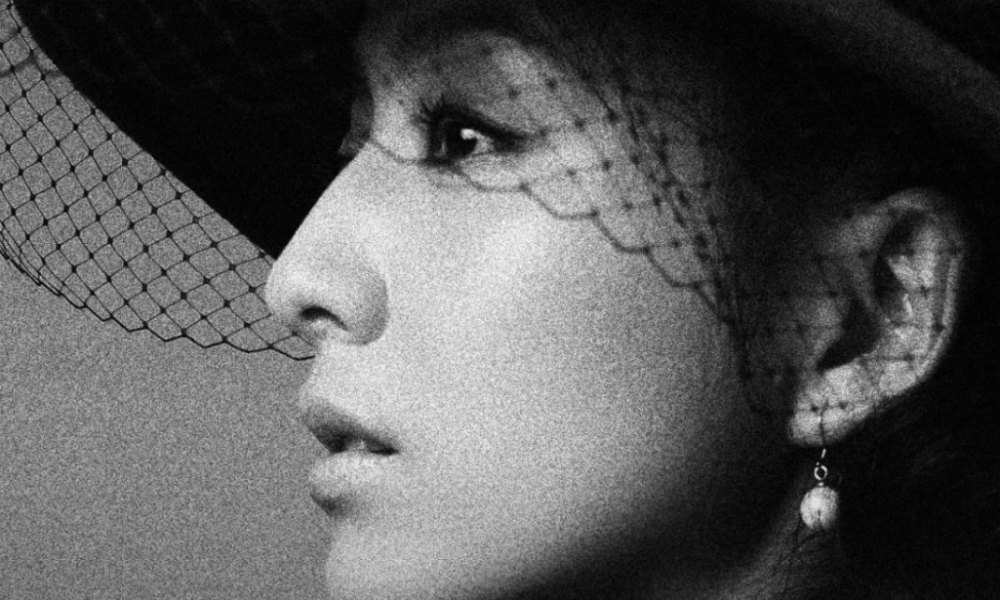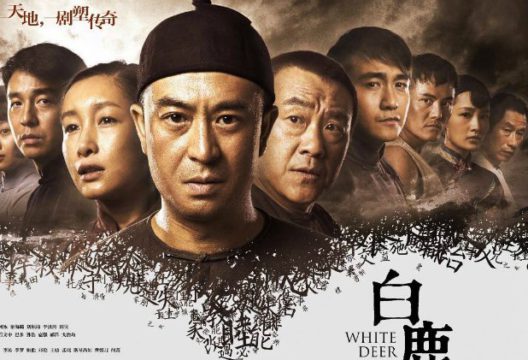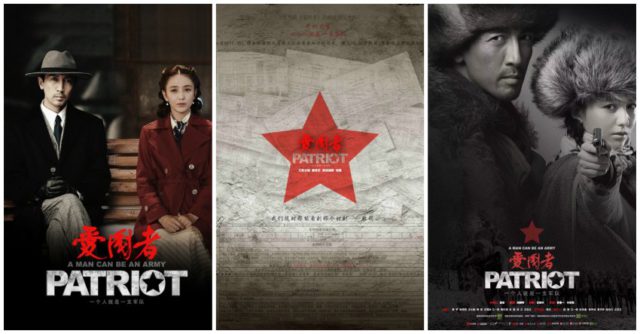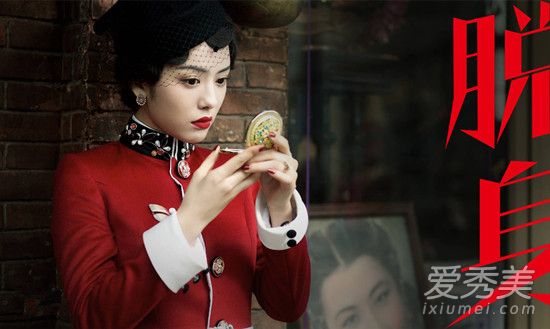China Arts & Entertainment
Top 10: Overview of China’s Most Popular TV Dramas of Summer 2018
These are the top-scoring TV dramas in China of this moment – and they are all produced in the PRC.
Published
6 years agoon

Turn on the airconditioning and get ready for some binge watching; these are the top trending TV dramas in China to watch this summer.
Note: also see our Top 30 of all-time classic Chinese TV Dramas here!
China still has one of the most booming TV drama industries in the world, with dozens of new dramas being released every month, drawing in millions of viewers through the country’s most popular online video streaming platforms.
We’ve compiled a top ten of most popular Chinese TV dramas based on the current popular charts of the leading websites in Chinese online video, including Tencent Video, iQiyi, Sohu, Youku, LeTV, 360kan, Sogou Video, along with Baidu’s and Weibo’s popular TV drama charts.
Like fashion and music, TV drama trends constantly change with the times and seasons. This summer, Chinese viewers are mostly into dramas that are themed around (historical) love stories and suspense. What is noteworthy is that the often very popular fantasy & martial art series, Sino-Japanese war dramas, and the ever-popular South-Korean tv dramas are not making it to the list of top-watched series this time; the current top 10 series are all produced in mainland China.
This list has been compiled by combining the top ranking lists of this moment to make sure we have all the current top-scoring TV dramas in China included. Please note that some of these series are currently still airing and have no English subtitles available at this time. Some links we provide here (such as those to Viki) have content restrictions depending on location. To circumvent you could consider purchasing a vpn (read more).
These are the dramas Chinese netizens are watching the most right now:
#10. Shanghai Women’s Manual (上海女子图鉴)

Mainland China
Genre: urban, romance
Directed by: Cheng Liang, 程亮
Episodes: 20, start May 8 2018, by Youku
Chinese video platform Youku released Shanghai Women’s Manual (or Women in Shanghai) last May, following the series Beijing Women Manual; both series are adapted from 2016 popular Japanese drama series Tokyo Joshi Zukan.
This successful TV drama, that currently ranks number 5 in Youku top 30, stars actress Wang Zhen’er (王真儿) as Luo Haiyan – a small-town girl who tries to make it in the big city.

Following Luo Haiyan’s life from college to corporate world.
The series revolves around career and romance in Shanghai, following Luo’s life from the days of university graduation to her first struggles and successes in the corporate world. Throughout Luo’s career path, her university sweetheart Zhang Tianhao (played by Taiwanese actor Li Chengbin 李程彬) keeps on playing an important role in her life.
Two pluspoint aspects of this series; the scenery is enjoyable (nice images of Shanghai streets and aerial views), and some of the music used in the episodes is great. The TV drama can be watched here (no subtitles, if you know of where to watch with English subtitles please leave comment).
#9. On Fire (走火)

Mainland China
Genre: suspense, crime
Directed by: Li Xiaoping 李小平 and Li Xiaoting 李小亭
Episodes: 40, start June 6 2018, by Zhejiang TV
Ranking no.4 in Weibo’s current most popular charts of the day and no.6 in Youku top 30, On Fire or Flame (走火) is a TV drama about a group of young police officers facing complicated and serious cases.
#8. White Deer Plain (白鹿原)

Mainland China
Genre: Contemporary historical drama
Directed by: Liu Jin 刘进
Episodes: 77, start July 16 2017
Currently ranking first in Baidu’s popular drama charts and number two in LeTV top 10, White Deer or White Deer Plain is a succesful tv drama that is based on the award-winning Chinese literary classic by Chen Zhongshi (陈忠实) from 1993.
The preparation and production of White Deer Plain was certainly not rushed; it reportedly took 17 years before this TV drama finally went on air.
This work’s success in China has previously been compared to that of One Hundred Years of Solitude by Gabriel García Márquez. White Deer Plain was previously also turned into a movie (2011).
The historical epic follows the stories of people from several generations living on the ‘White Deer Plain,’ or North China Plain in Shanxi province, during the first half of the 20th century. This tumultuous period sees the Republican Period, the Japanese invasion, and the early days of the People’s Republic of China.
The series is great in providing insights into how people used to live, from dress to daily life matter. The scenery and sets are beautiful. Some Youtube channels work on providing subtitles for this show, but we couldn’t find one channel with complete English subtitles yet.
#7. Great Expectations (远大前程)

Mainland China
Genre: Period drama, romance
Directed by: Xie Ze and Chen Xitai 谢泽、陈熙泰
Episodes: 48, start April 1 2018, by Hunan TV
Scoring number one position in the LeTv popular dramas chart, Great Expectations is set in Shanghai in the early 20th century.
The drama follows the story of Hong Sanyuan (played by Chen Sicheng 陈思成), who has come to Shanghai from a small town in search for a better life together with his mother and close friend Qi Lin. The new life in Shanghai does not come easy, however, and Hong gets wound up in political affairs and power struggles as he transforms from a street hooligan to a revolutionary.
Fun fact: besides starring in this TV drama as the main actor, Chen Sicheng is also the screenwriter and producer of Great Expectations. Drama is available through Viki here.
#6. Dr. Qin Medical Examiner 2 (法医秦明2清道夫)

Mainland China
Genre: crime
Director: Li Shuang, Chen Jiahong 李爽、陈嘉鸿
Episodes: 20, June 15th 2018, Sohu TV
This series is currently ranking number one in the Sohu hot drama charts. It is the sequel to one of the most successful network dramas on Sohu TV: Medical Examiner Dr. Qin (法医秦明), an adaptation from best-selling novels by Chinese forensic expert Dr. Qin Ming.
The series sheds light on the profession of forensic doctors, following their hardships and professional working attitudes, and stars Eric Liu Dong Qin, Liu Chang, and Yu Shasha. The original series is now available on Viki with subtitles.
#5. Patriot (爱国者)

Mainland China
Genre: Historical drama
Directed by: Gong Chaohui (龚朝晖)
Episodes: 50, June 9 2018, Jiangsu
Zhang Luyi (张鲁一) and Tong Liya (佟丽娅) star in this 50-episode drama that is curerently number two in Weibo’s popularity charts, getting a 7.1 rating at Sogou Video.
As the only series in this list, it is set at the time of the Second Sino-Japanese war (1937-1945), and tells the story of underground Communist party member Song Xiaqiao on a secret mission, who has to deal with spies and traitors. His love interest is played by the beautiful Tong Liya.

The marketing posters for this TV drama really stand out; they are original and quite stunning. Available to watch on YouTube (Chinese).
#4. Love Won’t Wait (如果,爱)

Mainland China
Genre: Urban, family drama
Directed by: Zhang Zheshu (张哲书)
Episodes: 47, May 27 2018, Mango TV and others
After 40 years of hard work, Wan Shicheng (Zhng Shuangli 张双利) has succeeded in establishing the biggest restaurant in the city. Despite his success, his family and daughters are facing many struggles – one of them, played by Cecilia Cheung (张柏芝), is caught in an abusive relationship while the other becomes pregnant after a one-night stand.
Love Won’t Wait is the top scoring tv drama in iQiyi charts at time of writing, and is ranking number 4 in Weibo’s popularity charts. The series can be viewed here (no English subtitles, let us know if available.)
#3. The Way We Were (归去来)

This is the number one show at 360kan and Youku, and top scoring show in Tencent Video this week.
Shu Che (Luo Jin 罗晋), Xiao Qing (Tiffany Tang 唐嫣), Liao Ying (Amelie Xu 许龄月) and Ning Ming (Tim Yu) are Chinese children from rich households living in the US. The TV drama follows the trials and tribulations of these students and their elite lives – facing challenges in love and legal battles.
The Way We Were is available for viewing on Viki or through Youtube (above) with subtitles.
#2. Summer’s Desire (泡沫之夏)

Mainland China
Genre: Youth drama, romance
Directed by: Yu Zhonzhong (于中中)
Episodes: 36, May 8 2018, by Zhejiang TV, iQiyi and others
The number one hottest tv drama at Sogou at time of writing, also ranking number three at Weibo’s weekly best-rated tv drama’s, is “Summer’s Desire.”
The popular TV series is based on the 2007 novel Summer of Foam by Ming Xiaoxi. It stars Zhang Xueying (张雪迎), Qin Junjie (秦俊杰), Madina Memet, and Huang Shengchi (黄圣池) and focuses on the love story between female protagonists Yin Xiamo and Ou Chen and Luo Xi.
#1. Lost in 1949 (脱身)

Mainland China
Genre: Suspense, historical drama
Director: Lin Ke (林柯)
Episodes: 47, June 11 2018
Lost in 1949 is the number one TV drama on Weibo’s popularity charts this week, along with the top scorer on iQiyi, and scoring a 8.8 rating on Tencent’s Video.
The stars of this spy drama are Chen Kun (陈坤) and Wan Qian (万茜). Chen actually plays two different roles in this drama.
The story is set in early 1949 at the time of the Chinese Communist Revolution. Huang Liwen is on her way to Shanghai to mourn her lost husband when she runs into Qiao Zhicai, who has been released from prison and is on a mission to find the person who framed him. In a coincidence meting, the suitcases of Qiao and Huang get mixed up. Huang’s suitcase contains an important item she needs to deliver to the underground organization of the communist party. It is the beginning of their adventure and lovestory, in which the protagonists’s devotion to their country plays an important role.

Want to read more? Check out:
– Top 10 of TV Drama in China 2017
– Top 5 of Best Drama Series Winter 2017/2018
– Best TV Dramas in China Summer 2017
– Most Popular Television Series in China in 2016
– Top TV Drama 2015
By Manya Koetse
Follow @whatsonweibo
Spotted a mistake or want to add something? Please let us know in comments below or email us.
©2018 Whatsonweibo. All rights reserved. Do not reproduce our content without permission – you can contact us at info@whatsonweibo.com.
Manya Koetse is the founder and editor-in-chief of whatsonweibo.com. She is a writer, public speaker, and researcher (Sinologist, MPhil) on social trends, digital developments, and new media in an ever-changing China, with a focus on Chinese society, pop culture, and gender issues. She shares her love for hotpot on hotpotambassador.com. Contact at manya@whatsonweibo.com, or follow on Twitter.

China Arts & Entertainment
“Old Bull Eating Young Grass”: 86-Year-Old Chinese Painter Fan Zeng Marries 36-Year-Old Xu Meng
Online reactions to the news of Fan’s marriage to Xu Meng, his fourth wife, reveal that the renowned artist is not particularly well-liked among Chinese netizens.
Published
1 day agoon
April 18, 2024
The recent marriage announcement of the renowned Chinese calligrapher/painter Fan Zeng and Xu Meng, a Beijing TV presenter 50 years his junior, has sparked online discussions about the life and work of the esteemed Chinese artist. Some netizens think Fan lacks the integrity expected of a Chinese scholar-artist.
Recently, the marriage of a 86-year-old Chinese painter to his bride, who is half a century younger, has stirred conversations on Chinese social media.
The story revolves around renowned Chinese artist, calligrapher, and scholar Fan Zeng (范曾, 1938) and his new spouse, Xu Meng (徐萌, 1988). On April 10, Fan announced their marriage through an online post accompanied by a picture.
In the picture, Fan is seen working on his announcement in calligraphic form.

Fan Zeng announces his marriage on Chinese social media.
In his writing, Zeng shares that the passing of his late wife, three years ago, left him heartbroken, and a minor stroke also hindered his work. He expresses gratitude for Xu Meng’s care, which he says led to his physical and mental recovery. Zeng concludes by expressing hope for “everlasting harmony” in their marriage.
Fan Zeng is a calligrapher and poet, but he is primarily recognized as a contemporary master of traditional Chinese painting. Growing up in a well-known literary family, his journey in art began at a young age. Fan studied under renowned mentors at the Academy of Fine Arts in Beijing, including Wu Zuoren, Li Keran, Jiang Zhaohe, and Li Kuchan.
Fan gained global acclaim for his simple yet vibrant painting style. He resided in France, showcased his work in numerous exhibitions worldwide, and his pieces were auctioned at Sotheby’s and Christie’s in the 1980s.[1] One of Fan’s works, depicting spirit guardian Zhong Kui (钟馗), was sold for over 6 million yuan (828,000 USD).

Zhong Kui in works by Fan Zeng.
In his later years, Fan Zeng transitioned to academia, serving as a lecturer at Nankai University in Tianjin. At the age of 63, he assumed the role of head of the Nankai University Museum of Antiquities, as well as holding various other positions from doctoral supervisor to honorary dean.
By now, Fan’s work has already become part of China’s twentieth-century art history. Renowned contemporary scholar Qian Zhongshu once remarked that Fan “excelled all in artistic quality, painting people beyond mere physicality.”
A questionable “role model”
Fan’s third wife passed away in 2021. Later, he got to know Xu Meng, a presenter at China Traffic Broadcasting. Allegedly, shortly after they met, he gifted her a Ferrari, sparking the beginning of their relationship.

A photo of Xu and her Hermes Birkin 25 bag has also been making the rounds on social media, fueling rumors that she is only in it for the money (the bag costs more than 180,000 yuan / nearly 25,000 USD).
On Weibo, reactions to the news of Fan’s marriage to Xu Meng, his fourth wife, reveal that the renowned artist is not particularly well-liked among netizens. Despite Fan’s reputation as a prominent philanthropist, many perceive his recent marriage as yet another instance of his lack of integrity and shamelessness.

Fan Zeng and Xu Meng. Image via Weibo.
One popular blogger (@好时代见证记录者) sarcastically wrote:
“Warm congratulations to the 86-year-old renowned contemporary erudite scholar and famous calligrapher Fan Zeng, born in 1938, on his marriage to Ms Xu Meng, a 50 years younger 175cm tall woman who is claimed to be China’s number one golden ratio beauty. Mr Fan Zeng really is a role model for us middle-aged greasy men, as it makes us feel much less uncomfortable when we’re pursuing post-90s youngsters as girlfriends and gives us an extra shield! Because if contemporary Confucian scholars [like yourself] are doing this, then we, as the inheritors of Confucian culture, can surely do the same!“
Various people criticize the fact that Xu Meng is essentially just an aide to Fan, as she can often be seen helping him during his work. One commenter wrote: “Couldn’t he have just hired an assistant? There’s no need to turn them into a bed partner.”
Others think it’s strange for a supposedly scholarly man to be so superficial: “He just wants her for her body. And she just wants him for his inheritance.”
“It’s so inappropriate,” others wrote, labeling Fan as “an old bull grazing on young grass” (lǎoniú chī nèncǎo 老牛吃嫩草).
Fan is not the only well-known Chinese scholar to ‘graze on young grass.’ The famous Chinese theoretical physicist Yang Zhenning (杨振宁, 1922), now 101 years old, also shares a 48-year age gap with his wife Weng Fen (翁帆). Fan, who is a friend of Yang’s, previously praised the love between Yang and Weng, suggesting that she kept him youthful.

Older photo posted on social media, showing Fan attending the wedding ceremony of Yang Zhenning and his 48-year-younger partner Weng Fen.
Some speculate that Fan took inspiration from Yang in marrying a significantly younger woman. Others view him as hypocritical, given his expressions of heartbreak over his previous wife’s passing, and how there’s only one true love in his lifetime, only to remarry a few years later.
Many commenters argue that Fan Zeng’s conduct doesn’t align with that of a “true Confucian scholar,” suggesting that he’s undeserving of the praise he receives.
“Mr. Wang from next door”
In online discussions surrounding Fan Zeng’s recent marriage, more reasons emerge as to why people dislike him.
Many netizens perceive him as more of a money-driven businessman rather than an idealistic artist. They label him as arrogant, critique his work, and question why his pieces sell for so much money. Some even allege that the only reason he created a calligraphy painting of his marriage announcement is to profit from it.
Others cast doubt on his status as a Chinese calligraphy ‘grandmaster,’ noting that his calligraphy style is not particularly impressive and may contain typos or errors. His wedding announcement calligraphy appears to blend traditional and simplified characters.

Netizens have pointed out what looks like errors or typos in Fan’s calligraphy.
Another source of dislike stems from his history of disloyalty and his feud with another prominent Chinese painter, Huang Yongyu (黄永玉). Huang, who passed away in 2023, targeted Fan Zeng in some of his satirical paintings, including one titled “When Others Curse Me, I Also Curse Others” (“人骂我,我亦骂人”). He also painted a parrot, meant to mock Fan Zeng’s unoriginality.

Huang Yongyu made various works targeting Fan Zeng.
In retaliation, Fan produced his own works mocking Huang, sparking an infamous rivalry in the Chinese art world. The two allegedly almost had a physical fight when they ran into each other at the Beijing Hotel.

Fan Zeng mocked Huang Yongyu in some of his works.
Fan and Huang were once on good terms though, with Fan studying under Huang at the Central Academy of Fine Arts in Beijing. Through Huang, Fan was introduced to the renowned Chinese novelist Shen Congwen (沈从文, 1902-1988), Huang’s first cousin and lifelong friend. As Shen guided Fan in his studies and connected him with influential figures in China’s cultural circles, their relationship flourished.
However, during the Cultural Revolution, when Shen was accused of being a ‘reactionary,’ Fan Zeng turned against him, even going as far as creating big-character posters to criticize his former mentor.[2] This betrayal not only severed the bond between Shen and Fan but also ended Fan’s friendship with Huang, and it is still remembered by people today.
Fan Zeng’s behavior towards another former mentor, the renowned painter Li Kuchan (李苦禪, 1899-1983), was also controversial. Once Fan gained fame, he made it clear that he no longer respected Li as his teacher. Li later referred to Fan as “a wolf in sheep’s clothes,” and apparently never forgave him. Although the exact details of their falling out remain unclear, some blame Fan for exploiting Li to further his own career.
There are also some online commenters who call Fan Zeng a “Mr Wang from next door” (隔壁老王), a term jokingly used to refer to the untrustworthy neighbor who sleeps with one’s wife. This is mostly because of the history of how Fan Zeng met his third wife.
Fan’s first wife was the Chinese female calligrapher Lin Xiu (林岫), who came from a wealthy family. During this marriage, Fan did not have to worry about money and focused on his artistic endeavours. The two had a son, but the marriage ended in divorce after a decade. Fan’s second wife was fellow painter Bian Biaohua (边宝华), with whom he had a daughter. It seems that Bian loved Fan much more than he loved her.
It is how he met his third wife that remains controversial to this day. Nan Li (楠莉), formerly named Zhang Guiyun (张桂云), was married to performer Xu Zunde (须遵德). Xu was a close friend of Fan, and helped him out when Fan was still poor and trying to get by while living in Beijing’s old city center.
Wanting to support Fan’s artistic talent, Xu let Fan Zeng stay over, supported him financially, and would invite him for meals. Little did he know that while Xu was away to work, Fan enjoyed much more than meals alone; Fan and Xu’s wife engaged in a secret decade-long affair.
When the affair was finally exposed, Xu Zunde divorced his wife. Still, they would use his house to meet and often locked him out. Three years later, Nan Li officially married Fan Zeng. Xu not only lost his wife and friend but also ended up finding his house emptied, his two sons now bearing Fan’s surname.
When Nan Li passed away in 2021, Fan Zeng published an obituary that garnered criticism. Some felt that the entire text was actually more about praising himself than focusing on the life and character of his late wife, with whom he had been married for forty years.

Fan Zeng and his four wives
An ‘old pervert’, a ‘traitor’, a ‘disgrace’—there are a lot of opinions circulating about Fan that have come up this week.
Despite the negativity, a handful of individuals maintain a positive outlook. A former colleague of Xu Meng writes: “If they genuinely like each other, age shouldn’t matter. Here’s to wishing them a joyful marriage.”
By Manya Koetse
[1]Song, Yuwu. 2014. Biographical Dictionary of the People’s Republic of China. United Kingdom: McFarland & Company, 76.
[2]Xu, Jilin. 2024. “Xu Jilin: Are Shen Congwen’s Tears Related to Fan Zeng?” 许纪霖:沈从文的泪与范曾有关系吗? The Paper, April 15. https://www.thepaper.cn/newsDetail_forward_27011031. Accessed April 17, 2024.
Independently reporting China trends for over a decade. Like what we do? Support us and get the story behind the hashtag by subscribing:
Spotted a mistake or want to add something? Please let us know in comments below or email us. First-time commenters, please be patient – we will have to manually approve your comment before it appears.
©2024 Whatsonweibo. All rights reserved. Do not reproduce our content without permission – you can contact us at info@whatsonweibo.com.
China Memes & Viral
Chengdu Disney: The Quirkiest Hotspot in China
How a senior activity park in Chengdu was ‘Disneyfied’ and became a viral hotspot.
Published
1 week agoon
April 12, 2024
How did a common park turn into a buzzing hotspot? By mixing online trends with real-life fun, blending foreign styles with local charm, and adding a dash of humor and absurdity, Chengdu now boasts its very own ‘Chengdu Disney’. We explain the trend.
– By Manya Koetse, co-authored by Ruixin Zhang
Have you heard about Chengdu Disney yet? If not, it’s probably unlike anything you’d imagine. It’s not actually a Disney theme park opening up in Chengdu, but it’s one of the city’s most viral hotspots these days.
What is now known as ‘Chengdu Disney’ all over the Chinese internet is actually a small outdoor park in a residential area in Chengdu’s Yulin area, which also serves as the local senior fitness activity center.
Crowds of young people are coming to this area to take photos and videos, hang out, sing songs, cosplay, and be part of China’s internet culture in an offline setting.
Once Upon a Rap Talent Show
The roots of ‘Chengdu Disney’ can be traced back to the Chinese hip-hop talent show The Rap of China (中国新说唱), where a performer named Nuomi (诺米), also known as Lodmemo, was eliminated by Chinese rapper Boss Shady (谢帝 Xièdì), one of the judges on the show.
Nuomi felt upset about the elimination and a comment made by his idol mentor, who mistakenly referred to a song Nuomi made for his ‘grandma’ instead of his grandfather. His frustration led to a viral livestream where he expressed his anger towards his participation in The Rap of China and Boss Shady.
However, it wasn’t only his anger that caught attention; it was his exaggerated way of speaking and mannerisms. Nuomi, with his Sichuan accent, repeatedly inserted English phrases like “y’know what I’m saying” and gestured as if throwing punches.
His oversized silver chain, sagging pants, and urban streetwear only reinforce the idea that Nuomi is trying a bit too hard to emulate the fashion style of American rappers from the early 2000s, complete with swagger and street credibility.

Lodmemo emulates the style of American rappers in the early 2000s, and he has made it his brand.
Although people mocked him for his wannabe ‘gangsta’ style, Nuomi embraced the teasing and turned it into an opportunity for fame.
He decided to create a diss track titled Xiè Tiān Xièdì 谢天谢帝, “Thank Heaven, Thank Emperor,” a word joke on Boss Shady’s name, which sounds like “Shady” but literally means ‘Thank the Emperor’ in Chinese. A diss track is a hip hop or rap song intended to mock someone else, usually a fellow musician.
In the song, when Nuomi disses Boss Shady (谢帝 Xièdì), he raps in Sichuan accent: “Xièdì Xièdì wǒ yào diss nǐ [谢帝谢帝我要diss你].” The last two words, namely “diss nǐ” actually means “to diss you” but sounds exactly like the Chinese word for ‘Disney’: Díshìní (迪士尼). This was soon picked up by netizens, who found humor in the similarity; it sounded as if the ‘tough’ rapper Nuomi was singing about wanting to go to Disney.

Nuomi and his diss track, from the music video.
Nuomi filmed the music video for this diss track at a senior activity park in Chengdu’s Yulin subdistrict. The music video went viral in late March, and led to the park being nicknamed the ‘Chengdu Disney.’
The particular exercise machine on which Nuomi performed his rap quickly became an iconic landmark on Douyin, as everyone eagerly sought to visit, sit on the same see-saw-style exercise machine, and repeat the phrase, mimicking the viral video.

What began as a homonym led to people ‘Disneyfying’ the park itself, with crowds of visitors flocking to the park, some dressed in Disney-related costumes.

This further developed the concept of a Chengdu ‘Disney’ destination, turning the park playground into the happiest place in Yulin.
Chengdu: China’s Most Relaxed Hip Hop Hotspot
Chengdu holds a special place in China’s underground hip-hop scene, thanks to its vibrant music culture and the presence of many renowned Chinese hip-hop artists who incorporate the Sichuan dialect into their songs and raps.
This is one reason why this ‘Disney’ meme happened in Chengdu and not in any other Chinese city. But beyond its musical significance, the playful spirit of the meme also aligns with Chengdu’s reputation for being an incredibly laid-back city.
In recent years, the pursuit of a certain “relaxed feeling” (sōngchígǎn 松弛感) has gained popularity across the Chinese internet. Sōngchígǎn is a combination of the word for “relaxed,” “loose” or “lax” (松弛) and the word for “feeling” (感). Initially used to describe a particular female aesthetic, the term evolved to represent a lifestyle where individuals strive to maintain a relaxed demeanor, especially in the face of stressful situations.
🌟 Attention!
For 11 years, What’s on Weibo has remained a 100% independent blog, fueled by my passion to write about China’s digital culture and online trends. Over a year ago, we introduced a soft paywall to ensure the sustainability of this platform. I’m grateful to all our loyal readers who’ve subscribed since 2022. Your support has been invaluable. But we need more subscribers to continue our work. If you appreciate our content and want to support independent China reporting, please consider becoming a subscriber. Your support keeps What’s on Weibo going strong!
The concept gained traction online in mid-2022 when a Weibo user shared a story of a family remaining composed when their travel plans were unexpectedly disrupted due to passport issues. Their calm and collected response inspired the adoption of the “relaxed feeling” term (also read here).
Central to embodying this sense of relaxation is being unfazed by others’ opinions and avoiding unnecessary stress or haste out of fear of judgment.
Nowadays, Chinese cities aim to foster this sense of sōngchígǎn. Not too long ago, there were many hot topics suggesting that Chengdu is the most sōngchí 松弛, the most relaxed city in China.
This sentiment is reflected in the ‘Chengdu Disney’ trend, which both pokes fun at a certain hip-hop aesthetic deemed overly relaxed—like the guys who showed up with sagging pants—and embraces a carefree, childlike silliness that resonates with the city’s character and its people.

Mocking sagging pants at ‘Chengdu Disney.’
Despite the influx of visitors to the Chengdu Disney area, authorities have not yet significantly intervened. Community notices urging respect for nearby residents and the presence of police officers to maintain order indicate a relatively hands-off approach. For now, it seems most people are simply enjoying the relaxed atmosphere.
Being Part of the Meme
An important aspect that contributes to the appeal of Chengdu Disney is its nature as an online meme, allowing people to actively participate in it.

Scenes from Chengdu Disney, images via Weibo.
China has a very strong meme culture. Although there are all kinds of memes, from visual to verbal, many Chinese memes incorporate wordplay. In part, this has to do with the nature of Chinese language, as it offers various opportunities for puns, homophones, and linguistic creativity thanks to its tones and characters.
The use of homophones on Chinese social media is as old as Chinese social media itself. One of the most famous examples is the phrase ‘cǎo ní mǎ’ (草泥马), which literally means ‘grass mud horse’, but is pronounced in the same way as the vulgar “f*ck your mother” (which is written with three different characters).
In the case of the Chengdu Disney trend, it combines a verbal meme—stemming from the ‘diss nǐ’ / Díshìní homophone—and a visual meme, where people gather to pose for videos/photos in the same location, repeating the same phrase.
Moreover, the trend bridges the gap between the online and offline worlds, as people come together at the Chengdu playground, forming a tangible community through digital culture.
The fact that this is happening at a residential exercise park for the elderly adds to the humor: it’s a Chengdu take on what “urban” truly means. These colorful exercise machines are a common sight in Chinese parks nationwide and are actually very mundane. Transforming something so normal into something extraordinary is part of the meme.

A 3D-printed model version of the exercise equipment featured in Nuomi’s music video.
Lastly, the incorporation of the Disney element adds a touch of whimsy to the trend. By introducing characters like Snow White and Mickey Mouse, the trend blends American influences (hip-hop, Disney) with local Chengdu culture, creating a captivating and absurd backdrop for a viral phenomenon.
For some people, the pace in which these trends develop is just too quick. On Weibo, one popular tourism blogger (@吴必虎) wrote: “The viral hotspots are truly unpredictable these days. We’re still seeing buzz around the spicy hot pot in Gansu’s Tianshui, meanwhile, a small seesaw originally meant for the elderly in a residential community suddenly turns into “Chengdu Disneyland,” catching the cultural and tourism authorities of Sichuan and even Shanghai Disneyland off guard. Netizens are truly powerful, even making it difficult for me, as a professional cultural tourism researcher, to keep up with them.”
By Manya Koetse, co-authored by Ruixin Zhang
Independently reporting China trends for over a decade. Like what we do? Support us and get the story behind the hashtag by subscribing:
Spotted a mistake or want to add something? Please let us know in comments below or email us. First-time commenters, please be patient – we will have to manually approve your comment before it appears.
©2024 Whatsonweibo. All rights reserved. Do not reproduce our content without permission – you can contact us at info@whatsonweibo.com.
Subscribe

Zara Dress Goes Viral in China for Resemblance to Haidilao Apron

“Old Bull Eating Young Grass”: 86-Year-Old Chinese Painter Fan Zeng Marries 36-Year-Old Xu Meng

Chengdu Disney: The Quirkiest Hotspot in China

Where to Eat and Drink in Beijing: Yellen’s Picks

Weibo Watch: Burning BMWs

The ‘Two Sessions’ Suggestions: Six Proposals Raising Online Discussions

A Snowball Effect: How Cold Harbin Became the Hottest Place in China

Jia Ling Returns to the Limelight with New “YOLO” Movie and 110-Pound Weight Loss Announcement

Top 9 Chinese Movies to Watch This Spring Festival Holiday

Party Slogan, Weibo Hashtag: “The Next China Will Still Be China”

From Pitch to Politics: About the Messy Messi Affair in Hong Kong (Updated)

Weibo Watch: Frogs in Wells

Looking Back on the 2024 CMG Spring Festival Gala: Highs, Lows, and Noteworthy Moments

Two Years After MU5735 Crash: New Report Finds “Nothing Abnormal” Surrounding Deadly Nose Dive

More than Malatang: Tianshui’s Recipe for Success
Get in touch
Would you like to become a contributor, or do you have any tips or suggestions? Get in touch here!
Popular Reads
-

 China Insight1 month ago
China Insight1 month agoThe ‘Two Sessions’ Suggestions: Six Proposals Raising Online Discussions
-

 China Insight3 months ago
China Insight3 months agoA Snowball Effect: How Cold Harbin Became the Hottest Place in China
-

 China Arts & Entertainment3 months ago
China Arts & Entertainment3 months agoJia Ling Returns to the Limelight with New “YOLO” Movie and 110-Pound Weight Loss Announcement
-

 China Arts & Entertainment2 months ago
China Arts & Entertainment2 months agoTop 9 Chinese Movies to Watch This Spring Festival Holiday





labarron
June 19, 2018 at 3:48 pm
Can someone recommend good VPN for streaming China’s TV dramas?
ralph
June 19, 2018 at 6:28 pm
Nordvpn is the one to go 🙂 An excellent and reputable provider! Here is a coupon code 75OFF to save some $
admin
June 20, 2018 at 4:26 pm
Hi Labarron, we recommend NordVPN or ExpressVPN. NordVPN currently has a very good deal, check it out: See https://www.whatsonweibo.com/best-vpns-for-china-summer-2018/.
bren
June 21, 2018 at 8:46 am
Great article! Lots of new shows to check out.
Just a small note, I think 白鹿原 takes place in 陕西, which is usually written as Shaanxi.
Chris
November 29, 2018 at 1:45 pm
Hi,
I found Love won’t wait with English subtitles here:
https://www.youtube.com/watch?v=fJof90AYsK8&feature=youtu.be
Have a good one
Chris